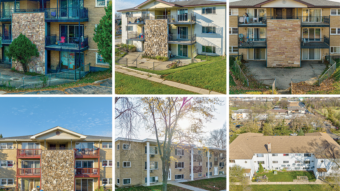
Guest post by Margy Sweeney, Akrete
Ideation is sexy—desks and leases, not so much. Entrepreneurs are passionate about ideas, technologies and people, and that’s where their energy should go. But all too often, the mundane issues of leasing and running an office can become a major distraction.
The office can kill start-up dreams—but it doesn’t have to, thanks to the sharing economy.
Rejecting the idea of the traditional office has become a game-changer for entrepreneurs—and that same idea has found an unlikely ally in real estate professionals. These experts talk about how they are bucking tradition and reinventing the start-up office.
Margy Sweeney, Akrete Inc.: Signing a lease and putting out a shingle used to be the first two steps to starting a company. What’s the new reality?
Raymond Rahbar, CEO, MakeOffices: In this new economy, new assumptions apply. It’s time to recognize that start-ups don’t need long-term leases; early-stage companies lose money overpaying for telecommunications systems; and growth suffers under unnecessary long-term financial commitments. Instead, founders and their companies thrive when they outsource the office, gaining access to work community beyond their small-but-growing teams; seamless connectivity – managed by somebody else; and flexibility—financial and operational.
Sweeney: How can offices be reinvented so entrepreneurs and their teams can thrive—rather than suffer death by distraction?
Ed Nolan, Senior Vice President, Workplace Strategy, JLL: The ultimate buzzkill to productivity and engagement is a one-size-fits-all workplace. While cubicle walls have become well-known innovation blocks, there is also such thing as too much buzz in an open office. A ‘one-size-fits-one’ approach to office space enables startups to engage their workers and give them choices, whether they’re in search of casual conversation with other local innovators, a standing-work station or a private meeting room where they can discuss ‘the next big idea’ under wraps until it’s time to go public.
Rahbar: The chance to regularly share ideas with others in the startup and investment community is one of coworking’s most powerful benefits. But that dialog can only become organic in an office where focus is equally supported by design that is ‘configured to mingle’ and get stuff done. This is achieved in a variety of ways, from noise-absorbing wall coverings and fully furnished workspaces, to a location menu that includes open desking, lounge areas, and smaller, different-size private offices that growing startups can rent and grow in.
Sweeney: What role does technology play in providing a startup-friendly office environment?
Rahbar: Technology is the natural convergence between coworking and many startups, and so it’s fitting that how well it’s supported can make the difference between a shared office that’s hot—and not. Free, high-speed Internet may have become tablestakes, but new differentiators now include networking and mentoring events; flexible plans that include impressive-to-investors conference room access; and rooms that are video conferencing-ready.
Nolan: There are new and exciting ways modern workplaces can leverage advanced technology to support collaboration and innovation. For example, as part of the recent renovation of our headquarters in downtown Chicago’s Aon Center, JLL installed smart whiteboards, which enables ideation with colleagues in other locations, equipped workspaces with dual monitors, and added touchscreens to reservation-based meeting rooms, so that they can be reserved ahead or on the fly.
Sweeney: What does the future hold for startup-friendly offices, and how might that influence the broader ecosystem of workplace design as a whole?
Nolan: Modern office space that balances heads-down and heads-up time is often associated with the tech space, but the new reality is that all sectors are now seeing value here, particularly with the growing need to accommodate Millennial workers’ hunger for technology and mobility. What’s more, all four generations inhabiting today’s workspaces can also benefit from environments that encourage active engagement. For forward-looking organizations of all stripes, investing in engagement-oriented workspace is worth the while, especially considering that organizations where employees can successfully connect and engage yield almost 150 percent higher earnings per share when compared with their competition (as documented by Gallup’s State of the American Workplace report).
Rahbar: As with any good sharing economy application, the original version of the shared office environment is only temporary. The coworking space is in the midst of upgrade. Today’s startups need more flexibility as they ramp up, as they progress from teams of two, to 22 and more—without being restricted by the terms of a traditional lease. As workplaces catch up to this notion of a more flexible approach to real estate, its popularity will only grow across industry lines. Because more than simply leveraging intriguing new technologies and offering free snacks, a great shared office space also offers what no popular café or stunning single-use office can: A hub of diverse innovation, all engaging under the same roof.
Margy Sweeney is an entrepreneur with more than 20 years’ experience marketing and publicizing commercial real estate. She is the founder of @TeamAkrete, a consulting firm that helps companies articulate growth stories, using technology and communication to gain market share, attract capital and increase valuation.



